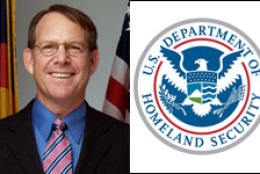Critical infrastructure
-
On this week's Capital Impact show, Bloomberg Government analysts will examine NIST's preliminary cybersecurity framework, and Google's lobbying efforts. November 7, 2013
November 07, 2013 -
NIST issues the industry-developed final draft approach to help critical infrastructure providers secure their computer systems. The agency is accepting comments over the next couple of months and will issue a version 1.0 of the framework in February. Industry offered mixed reactions to the framework. Some said it's too broad while others said it provides a set of agreed upon basic cyber protections.
October 23, 2013 -
The preliminary version of the framework will be published in mid-October, followed by several months of public comment. NIST plans a final release of the voluntary framework in February.
September 26, 2013 -
Building off a project to assess the nation's overall cyber capabilities, the Department of Homeland Security has begun drawing up plans for how it would respond in the event of a range of cyber emergencies affecting critical infrastructure.
August 08, 2013 -
NIST, charged with developing the nation's first-ever cybersecurity baseline for critical infrastructure, says its job is to provide technical assistance to companies, but industry itself must lead the way. Gen. Keith Alexander said NSA will review the use of contractors.
June 13, 2013 -
President Obama's recent executive order directing that cyber threat information be shared more broadly with the private sector risks making the data less useful to the intelligence agencies that gather and process it. But the risk is worth the potential reward.
February 25, 2013 -
Pentagon makes one more plea for a resolution to sequestration. A regular budget, an annual authorization bill and a resolution to the fight over cybersecurity laws would be helpful as well.
October 26, 2012 -
Mark Weatherford, DHS deputy undersecretary for cybersecurity, discusses how the National Cybersecurity and Communications Integration Center is at the core of an effort to bring government and industry closer together to respond to threats against critical infrastructure. October 25, 2012
October 25, 2012 -
Identity management, standup of Cyber Command, and information sharing with the industrial base have been cited as key cyber accomplishments in the Department of Defense. But much work remains, experts say.
October 25, 2012 -
The administration is considering using an executive order to promote and encourage critical infrastructure providers to improve their cybersecurity. The draft EO, which Federal News Radio obtained details of, mirrors major sections of the second version of the Lieberman- Collins comprehensive cyber bill.
September 07, 2012 -
In 2011, companies reported 198 cyber incidents to the Homeland Security Department — a nearly 383 percent increase above 2010, according to a June 28 report from the Industrial Control Systems Cyber Emergency Response Team (ICS-CERT). Companies reported nine such incidents in 2009., when DHS opened ICE-CERT to help protect private-sector operators critical infrastructure from "emerging" cyber threats.
July 04, 2012 -
Gen. Keith Alexander said a recent cyber exercise is the first time the military showed it can do offensive and defensive capabilities at the same time, by the same team. This was part of Alexander's answers to questions from Sen. John McCain.
May 04, 2012 -
The government is working with a cobbled-together set of authorities and responsibilities when it comes to protecting networks from cyber threats, a top Homeland Security Department cyber official said Wednesday. Congress needs to act soon to update the nation's cybersecurity posture, he said.
May 03, 2012 -
Information sharing is critical but insufficient, White House cyber chief says. Howard Schmidt said the federal government's responsibility is broader than its own systems and that is why any cyber bill needs stronger oversight of critical networks.
April 11, 2012 -
Joe Jarzombek, the director of software assurance at the division, joined the Federal Drive with Tom Temin and Amy Morris to discuss the workshops DHS is sponsoring at the conference.
September 19, 2011



